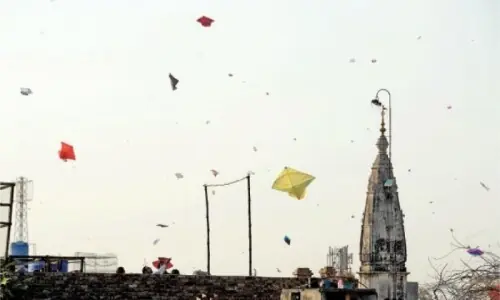• Banned group blames escalation on army, spy agencies’ actions
• Orders fighters to carry out attacks ‘wherever and whenever’ they can
• Govt, ISPR remain tight-lipped on threat as law enforcers fear reprisals
PESHAWAR: With the army set to witness a change of command at the top today, the proscribed Tehreek-i-Taliban Pakistan (TTP) has asked its combatants to carry out attacks across the country in the wake of “unabated” operations by security forces against militants in the southern districts of Khyber Pakhtunkhwa.
In a chilling statement signalling the end of the ceasefire with the state, the banned outfit said on Monday that security forces had launched operations against their people in Bannu, Lakki Marwat and other districts of the province.
“Carry out attacks, wherever and whenever you can,” the statement directed its so-called sector commanders and combatants throughout the country.
The statement said that the TTP had shown “maximum restraint” and had warned the general public that the peace process should not be sabotaged.
“The army and spy agencies did not restrain [themselves],” it said, calling on TTP fighters to take revenge.
There has been no response to the militants’ move, either from the government or the military’s media wing, Inter-Services Public Relations.
However, a senior law enforcement officer from Khyber Pakhtunkhwa told Dawn they now expected “a new wave of terror attacks, an outbreak of all-out hostilities”.
The group issued the warning on the eve of Army Chief Gen Qamar Javed Bajwa’s retirement, when he hand over the baton of command to COAS-designate Gen Syed Asim Munir at General Headquarters in Rawalpindi on Tuesday morning.
Gen Bajwa, after assuming charge of the army, had ordered operation Radd-ul-Fasaad against terrorists across the country in February 2017. Thousands of intelligence-based operations (IBOs) were carried out against the TTP and other militant organisations.
Doomed to fail?
After the fall of the US-supported Ashraf Ghani government in Afghanistan in August last year the Afghan Taliban facilitated peace talks between the government and the TTP. The TTP is said to have thousands of fighters in Afghanistan.
According to AFP, in the year since the Taliban took over Afghanistan, Pakistan has seen a 50 per cent surge in militant attacks, according to the Pak Institute for Peace Studies (PIPS).
While negotiations with the banned group reportedly began last October under the PTI government’s watch, the process continued with fits and starts – apparently with the military establishment’s blessing – when the Shehbaz Sharif government took over in April of this year.
In response the banned outfit had declared a ceasefire and stopped its attacks on security forces, ‘indefinitely’ extending the truce in May. The government had also sent delegations of tribal elders and ulema to Kabul in order to persuade the TTP to end its activities and surrender its weapons.
The months-long negotiations, however, remained inconclusive. Major sticking points included the TTP’s demands to roll back the merger of the erstwhile tribal areas with KP, release hardened terrorists, as well as the group’s refusal to lay down their arms. These were obvious red lines the state could not let the militants cross.
Return to violence
Terrorism once again started rearing its head in the region and last month the interior ministry was forced to admit that the peace process with the militants had reached “a standstill”.
Reports had been circulating for the past several months that the militants had returned to the former tribal belt, as well as Malakand, with locals complaining of extortion calls from the outfit. Large peace rallies were held by the locals in Swat, Khyber and other areas of KP as an uptick in militant violence was witnessed.
Eventually, the banned outfit started owning some of the attacks on security forces. Two suicide attacks were carried out against the law enforcement agencies in North Waziristan during the last few weeks.
Security forces also came under attack in Lower and Upper Waziristan tribal districts.
A police van was attacked in Lakki Marwat district on Nov 15 in which six officials were martyred.
Following the attack on the police force security forces conducted operation in Bannu and Lakki Marwat districts on Sunday and one militant was killed. Before the operation in Bannu-Lakki Marwat security forces had conducted multiple IBOs in the adjacent Dera Ismail Khan and Tank districts.
In the wake of the recent attacks Foreign Minister Bilawal Bhutto-Zardari had called for “revisiting” the policy towards the TTP.
Another sign that the ceasefire was faltering, according to AFP, was the fact that the military had since last week been patrolling the affected area in an attempt to root out militants, with helicopter gunships shelling their hideouts.
Published in Dawn, November 29th, 2022

































